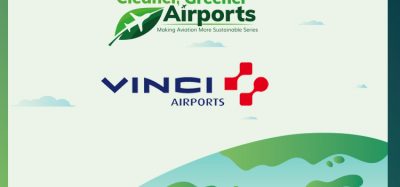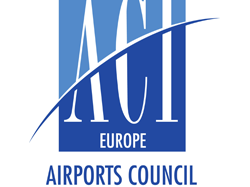Aviation needs to better understand the links between noise and health
Posted: 25 September 2020 | International Airport Review | No comments yet
ICCAN highlights how there is limited quality evidence on how aviation noise impacts someone’s quality of life, health and wellbeing.


The UK’s Independent Commission on Civil Aviation Noise (ICCAN) is seeking to develop new evidence examining the relationship between aviation noise and people’s health.
For those who live near airports or under flightpaths, noise can be a disturbing part of their lives and can affect them in a number of different ways. However, there is limited good evidence on just how aviation noise impacts someone’s health and wellbeing.
ICCAN has published a review of the existing evidence examining the links between aviation noise and health to try to determine which areas demand more focus.
Join us live: Shaping the Next Generation of Hold Baggage and Air Cargo Screening
Join us live for an insightful webinar on 11th December at 14:00 GMT, in collaboration with Smiths Detection, as we explore the strategic balance of operational efficiency, regulatory compliance, and sustainability in high-volume security environments.
This session offers a focused look into future-proofing your security strategy.
Key learning points
- Cost Reduction: Strategies to minimize bag travel time while simultaneously reducing operational costs.
- Regulatory Roadmap: Insights into the next wave of regulatory changes and their impact on future investment decisions.
- Sustainable Systems: Practical approaches to building sustainability into security systems and lowering the total cost of ownership (TCO).
- Scalable Solutions: Real-world examples of scalable systems supporting current airport growth and preparing for tomorrow.
Register now for expert insights, case studies, and actionable strategies on operational efficiency!
The review – ‘Aviation noise and public health: rapid evidence assessment’ – was commissioned by ICCAN from the National Centre for Social Research (NatCen) and brings together previous reviews by providing an update to a rapidly developing subject area.
For each health outcome, the quality of the evidence bases was assessed through a formal rating system, known as ‘GRADE’. NatCen concluded that the quality of the evidence for most health outcomes is ‘very low’ or ‘low’, while only some are ‘moderate’. For evidence to achieve a ‘moderate’ or ‘high’ quality rating, it must pass a demanding threshold. This requires a body of evidence with several high-quality studies that are either repeated over time or feature large sample sizes, both of which are costly and resource intensive.
The evidence reviewed was found to be ‘low’ quality around the impact of birth, reproduction and some areas of sleep and hypertension. There was also little or no evidence for some areas of health, including dementia and other neurodegenerative outcomes, auto-immune disorders and other cancers. The quality of evidence was judged to be ‘moderate’ for reading comprehension and stroke incidence.
Head Commissioner of ICCAN, Rob Light, said: “This review shows that there is a real scarcity of high-quality evidence around the links between aviation noise and health. We want to help build the evidence base so that we can work towards having a more complete picture about how noise truly affects people’s health and wellbeing.”
ICCAN will now develop a strategy for how to expand and improve the existing evidence base around health and aviation noise.
The International Airport Summit is open for registration!
Date: 19 – 20 November 2025
Location: JW Marriott Hotel Berlin
At our flagship event of the year, we will dive into the future of airport operations, with expert-led sessions on passenger experience, innovative smart technologies, baggage handling, airside operations, data, security, and sustainability.
This is where global airport leaders come together to share insights, challenges, and real-world solutions.
Limited complimentary passes are available for eligible professionals – first come, first served!
Related topics
Airport development, Noise abatement, Regulation and Legislation

















